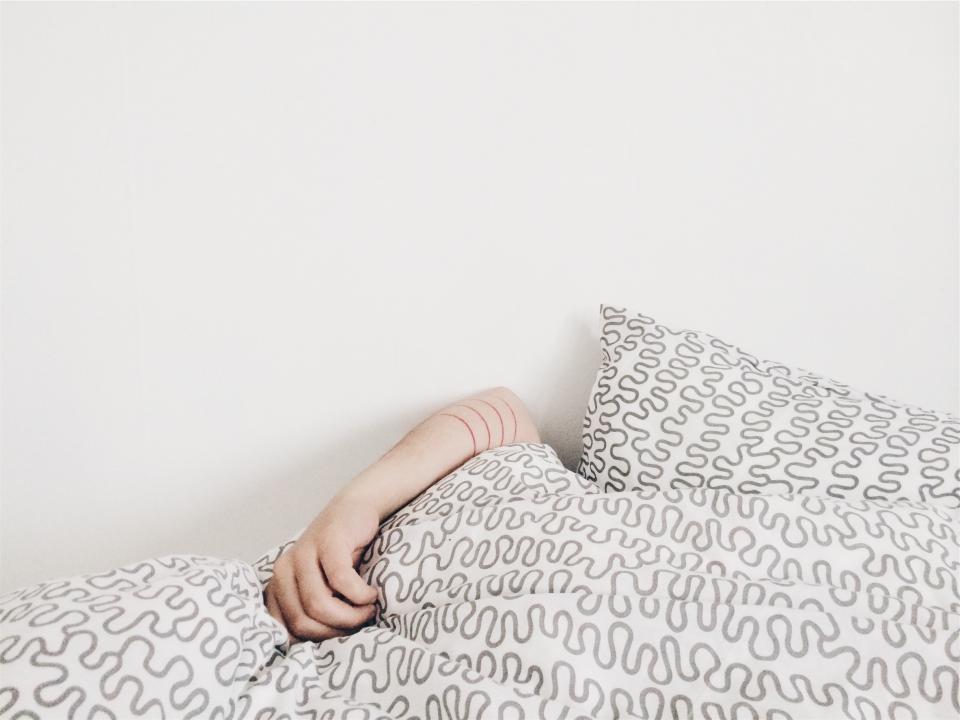Do genes determine your sleep?
Did you know that genetics only account for about 30-50% of sleep duration based on the study of 11 pairs of identical twins? The twins in the study obviously had identical genes but different living environment and lifestyles.
This means your behavior and environment make a larger impact on sleep than your genetics. This is actually good news as you have control of your lifestyle and not so much of your genetic makeup.
What does lack of sleep do to your immune system?
Let me reiterate that lack of sleep suppresses your immune system. You might know anecdotally how easy it is to catch a cold when you don’t get enough sleep. Even a day of sleep deprivation increases inflammatory markers and shuts down the immune response of circulating white blood cells. That’s why studies showed that when sleep deprived people received a vaccine, they didn’t develop as many antibodies. A study done on chronically sleep-deprived people showed that they were more likely to catch a rhinovirus when exposed compared to people who slept enough!
Considering the current pandemic, sufficient sleep is probably the most important factor determining whether a person gets an asymptomatic or a very mild case of COVID19 after exposure. This virus may be with us for a while, maybe even until the vaccine is developed. And if the vaccine becomes available, sleep deprived people may be at a disadvantage because their immune system might not be able to respond and produce sufficient antibodies.
How does lockdown affect your sleep?
I am writing this article while we are still in lockdown. Although I have friends that report getting more sleep now because they no longer have an early commute, almost everyone I know is struggling with getting enough quality sleep. The fear of the virus, the stress of economic uncertainty, homeschooling children at home while trying to work all contribute to the inability to unwind at night. Add to this a disruption of regular schedule and increased screen time, and we have a recipe for a really messed up sleep.
What can you do now to improve your sleep starting right now?
I am going to describe my top suggestions for improving your sleep that you can implement right away. Don’t wait, start with at least one suggestion and add as many as you can. Some of them are quick and easy and some require more effort but your good sleep is essential so it is worth it!
- Set a regular sleep schedule even if you are tempted to sleep in late. Sleeping in late will shift the sleep schedule to a later time little by little causing a disruption of your circadian rhythm so don’t do it! If you are already going to bed late, set an alarm and get up earlier until you build up sleep pressure. This will reinforce a more regular and earlier bedtime and eventually longer and better sleep.
- Go outside, especially in the morning sun. Bonus if you can walk outside barefoot and get the benefits of grounding. At the same time, limit exposure to bright light after sunset. This will calibrate your circadian rhythm and signal to your body when it’s time to fall asleep.
- Get tired, but not too tired. It can mean different things for different people and depends on your age, gender and energy level. If you are overly active, your body can perceive it as stress and may have a hard time shutting down. But being sedentary causes insomnia as well. As a general rule, at least a 30-minute walk and some light activity throughout the day are necessary for better sleep.
- Stop eating for at least 3 hours before bed. Ideally you might want to stop eating after the sunset or earlier (especially in the summer). Digesting food is a metabolically active process that can disrupt your sleep.
- Avoid sugar/excessive carbs because they cause blood sugar fluctuations that body perceives as stress. Higher level of cortisol associated with hypoglycemia disrupts sleep. Instead eat real food such as grass-fed meat, fish, greens, olive oil, avocados, and many colorful vegetables.
- Optimize your sleeping environment. Keep your bedroom dark and cool and take out all the beeping or lit up devices. Use a sleep mask if your bedroom is not completely dark. Consider getting a weighted blanket. I personally use a 15 lbs weighted blanket that I found on Amazon for about $60. Weighted blankets are designed to mimic deep touch pressure that stimulates the release of serotonin and calms the mind.
- EFT (emotional freedom technique) is based on acupressure points and affirmations and is an amazingly effective method for reducing anxiety, stress and insomnia. This YouTube video will knock you out in about 5 minutes! https://www.youtube.com/watch?v=0b3VadMr7HI
- Consider the following supplements:
- vitamin D in the morning such as Quicksilver Scientific liposomal D3/K2
- magnesium threonate in the morning and other forms of magnesium at night.
- Lion’s mane mushroom (Host Defense), liposomal CBD (Quicksilver Scientific).
- For stress, add passion flower extract (Metagenics MyoCalm includes magnesium, calcium, valerian and passion flower).
- Quicksilver scientific makes an amazing liposomal melatonin that works within 15-30 minutes, which is especially helpful if you have a hard time falling asleep.*
*These professional quality supplements are available at my Wellevate dispensary:

